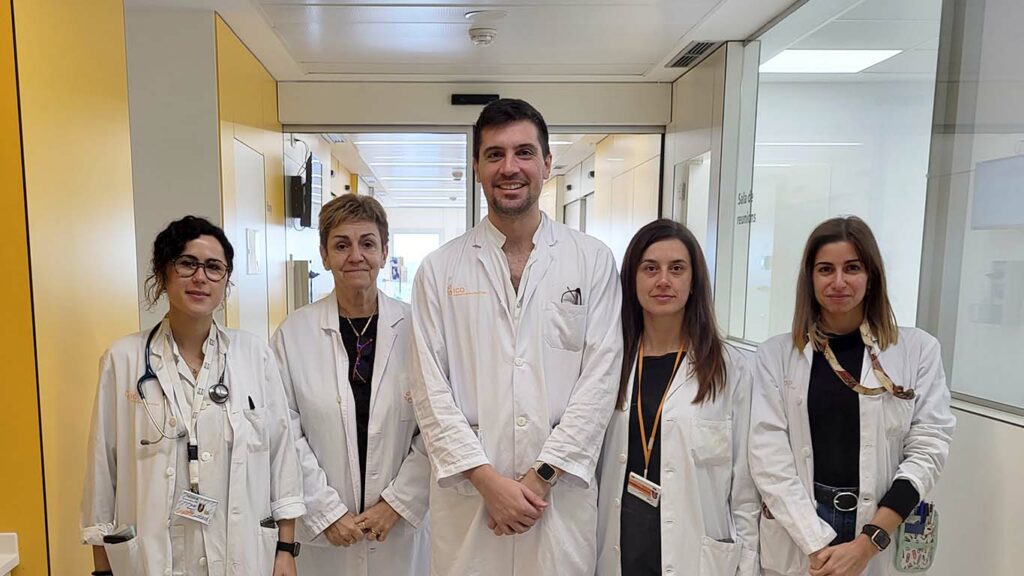When treating a lymphoma that requires an allogeneic transplant, it is recommended that the donor come from a registry with high compatibility, rather than from a donor with a family relationship but with less compatibility (haploidentical). This is the main conclusion drawn from the study published in the journal ‘Transplantation and Cellular Therapy‘ and carried out by a group of researchers from the Catalan Institute of Oncology and IDIBELL, with the collaboration of the European Bone Marrow Transplantation Society (EBMT) and the Center for International Blood and Marrow Transplant Research (CIBMTR). The study was led by the coordinator of the ICO L’Hospitalet Hemopoietic Transplantation and Cell Therapy Unit, Alberto Mussetti, with the participation of the head of the ICO L’Hospitalet Clinical Hematology Service, Anna Sureda, both members of the group of Hematopoietic and Lymphoid Tumors of IDIBELL.
Until today, and according to international medical recommendations, when looking for a donor to perform a bone marrow transplant, the first option is always that of a family donor with a high compatibility (100%). The second option is to look for a donor with a high registry compatibility and, as a last option, a haploidentical relative (with a compatibility between 50-70%). However, some centers, if there is no highly matched family donor, go directly to a haploidentical family donor. This especially occurs when cyclophosphamide is used to reduce graft-versus-host disease after transplantation.
How has this study been carried out?
In order to carry out this study, data from 2,140 patients were used, mainly from two international databases, the aforementioned EBMT and CIBMTR. These patients, all of them older than 18 years, had received a hematopoietic cell transplant between 2010 and 2019, either from haploidentical relatives or from donors with a matched record, but with a high matching match, and subsequent treatment with cyclophosphamide.
Once the data was analyzed, it was possible to see that after performing the transplant and receiving drug treatment with cyclosphosphamide, the patients who had received the transplant from a donor of record but with high accounting had better results. Thus, greater toxicity can be observed among haploidentical family donors, which may end up affecting their survival. On the other hand, no significant differences were observed in terms of disease relapse and neutrophil regeneration after the transplant.
According to Alberto Mussetti, these results show that “in the face of an allogeneic transplant, and subsequent treatment with cyclophosphamide, it is necessary to find the most compatible donor, as established by international standards, since this ends up reverting directly to the patient.”
The Bellvitge Biomedical Research Institute (IDIBELL) is a biomedical research center created in 2004. It is participated by the Bellvitge University Hospital and the Viladecans Hospital of the Catalan Institute of Health, the Catalan Institute of Oncology, the University of Barcelona and the City Council of L’Hospitalet de Llobregat.
IDIBELL is a member of the Campus of International Excellence of the University of Barcelona HUBc and is part of the CERCA institution of the Generalitat de Catalunya. In 2009 it became one of the first five Spanish research centers accredited as a health research institute by the Carlos III Health Institute. In addition, it is part of the “HR Excellence in Research” program of the European Union and is a member of EATRIS and REGIC. Since 2018, IDIBELL has been an Accredited Center of the AECC Scientific Foundation (FCAECC).

